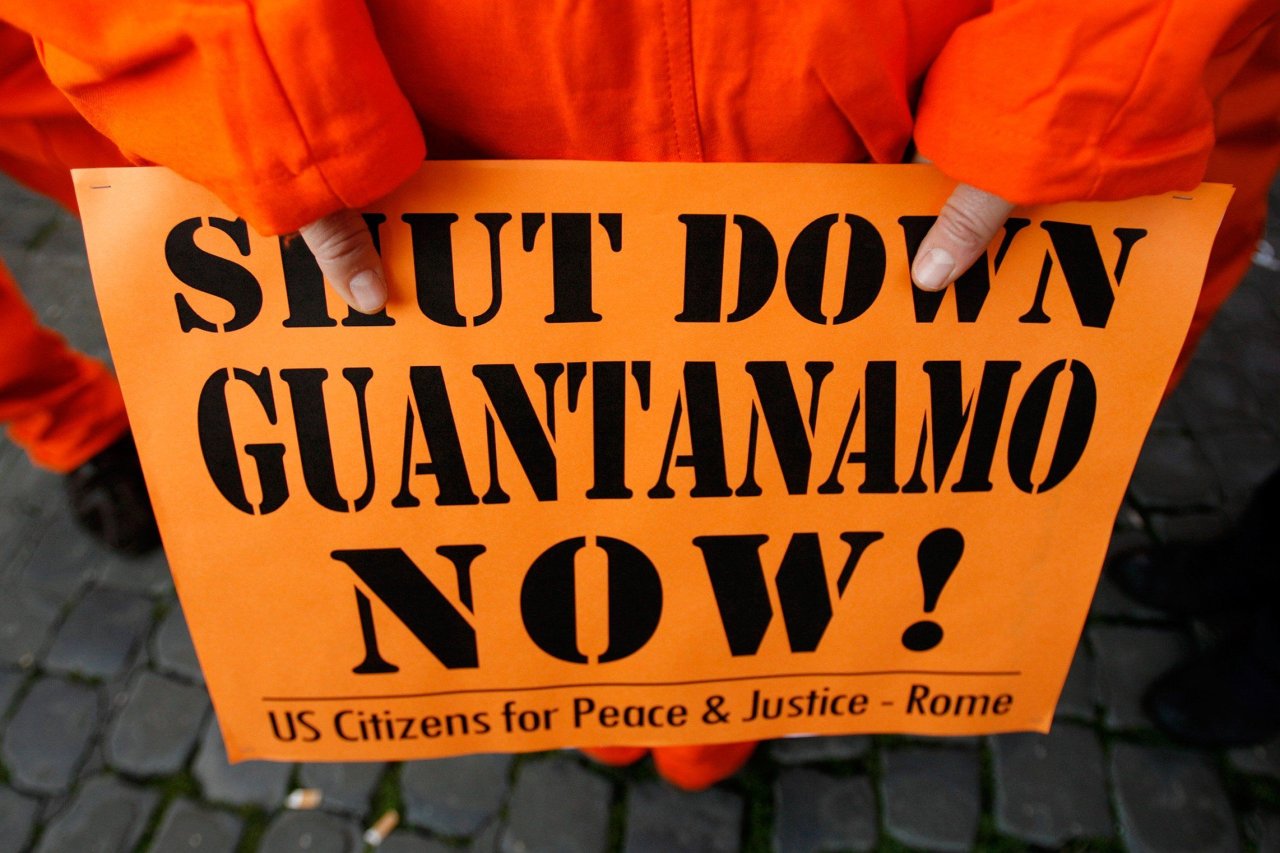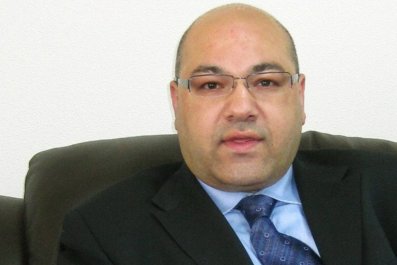No problem has been more insoluble for Barack Obama than closing the detention facility at Guantánamo Bay. But last week there seemed—outwardly at least—to be signs of progress.
On July 24, the Senate held its first hearing on the matter since the earliest days of the Obama presidency, and Democratic senators addressed the issue with a passion and urgency that in recent years had given way to fatalism and resignation. Earlier that day, the White House had delivered a two-page plan to Congress explaining how it intended to close the facility. That alone seemed like a significant break from Obama's first bid to shut Gitmo, back in 2009. At the time, lawmakers complained bitterly that the administration was failing to energetically engage them on the issue. Now even some Republicans were sensing momentum—and showing a willingness to work with the White House. John McCain, who recently traveled to Gitmo with White House Chief of Staff Denis McDonough, praised the administration's renewed efforts on the issue. "The difference between 2009 and 2013 is the administration now has a plan," he exulted in an interview with Bloomberg's Al Hunt.

By week's end, Obama looked like he was actually beginning to follow up his pledges with action. The White House announced its intention to transfer two detainees back to Algeria, the first repatriation of Gitmo prisoners in almost a year. Meanwhile, Obama's new State Department envoy on Gitmo, prominent Washington lawyer Clifford Sloan, was jetting around the globe meeting with foreign governments to try to facilitate more transfers, and the Pentagon was preparing to announce the appointment of an envoy of its own—a senior military official, Newsweek has learned.
No one was getting ready to turn Gitmo into a Caribbean resort, of course. But some of the jail's harshest critics were beginning to see its closure as a realistic prospect. "I'm encouraged," says Ken Gude, vice president of the Center for American Progress. "Their strategy is clearly to build momentum so that by the end of the president's term in 2016, there's a real chance we can close the prison."
It all appeared promising. But the two-page plan—which Newsweek obtained—makes clear that the administration's vision for closing Gitmo is more like a mirage, one containing many of the political elements that have served to frustrate progress on issue after issue over the past five years. Once again, Congress seems poised to block Obama's loftiest goals; once again, liberal activists say the president should circumvent the legislative branch; and once again, the administration is replying to these entreaties by insisting that it simply cannot move ahead alone.
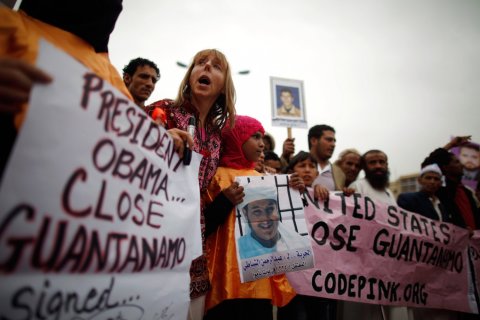
Ever since Obama vowed to "go back at" the Guantánamo challenge in a major national security policy address in May, his aides have gamely thrown themselves into the effort. There is more White House activity swirling around Gitmo now than there has been in three years. Numerous people are working on the project, either part time or full time, under the leadership of Lisa Monaco, Obama's chief counterterrorism adviser. White House lobbyists have been all over Capitol Hill, meeting with members of Congress. And yet, despite all this, Obama aides quietly admit that unless the political climate changes dramatically, Guantánamo will likely be open for business for many years to come.
Whatever progress has been made with this latest push is merely on the margins. The decision to release the Algerian detainees, for example, had been in the works for more than a year and does not presage a wave of new transfers. "This was the low-hanging fruit, and no one should expect many more of these in the coming months," says one senior administration official.
It's a point the White House openly concedes. Back in 2011, Congress mandated that the administration could not transfer detainees out of Gitmo unless the secretary of Defense certified that the detainee would not engage in terrorism—a high bar to clear. It also instituted a total ban on bringing prisoners to the U.S. homeland. "That we are finally able to certify two detainees under the current legal restriction should not confuse the issue," says Caitlin Hayden, spokesperson for the National Security Council. "The current legislative restrictions are cumbersome, unnecessary, and, with the exception of a few rare circumstances, unworkable."
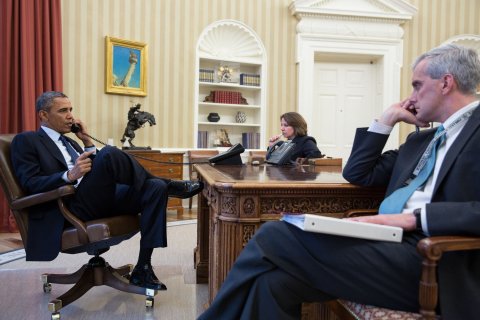
Indeed, that was the blunt message two Democratic senators, Dianne Feinstein and Richard Durbin, heard earlier this month when they met with the two most senior White House officials handling Guantánamo—Monaco and White House Counsel Kathryn Ruemmler. Two sources familiar with the July 15 meeting say the senators left the session frustrated that the White House was not looking for more creative ways to solve the Guantánamo conundrum, including using all of its current authority to transfer out detainees. Durbin obliquely alluded to his concern a few days later at the Senate hearing, which he chaired. "I'll be the first to acknowledge that the administration could be doing more to close Guantánamo," he said before telling the attendees that he and Feinstein had met with "senior White House officials to discuss what they are doing under existing law to transfer detainees out of Guantánamo."
As for the administration "plan" to close Gitmo, it reads as much like an argument for why the prison can't be closed anytime soon as a blueprint for the kind of bold action some say would be required to shut down the facility. Here's how the document—titled "White House Plan for Closing the Guantánamo Bay Detention Facility"—begins:
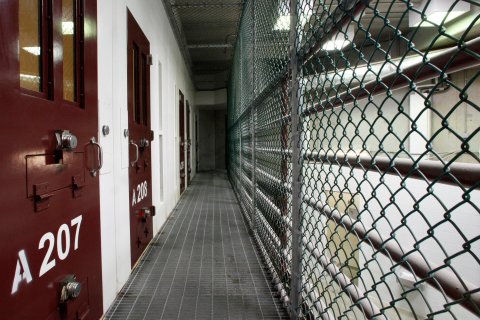
"There has been bipartisan support for closing the Guantánamo Bay detention facility but restrictions in current law have made it almost impossible to transfer detainees to other countries even when our counterterrorism and law enforcement professionals determine we can responsibly do so. Those same restrictions prohibit the prosecution of detainees in federal court or their detention even in a supermax federal prison. As President Obama has said, these restrictions should be repealed, but in the meantime, the Administration is doing all it can do to close the facility."
The document goes on to detail the steps Obama has taken to facilitate the closure of Guantánamo since he announced his vow to "go back at" the problem in May—among them, appointing Sloan and lifting a self-imposed moratorium on repatriating Yemeni detainees. But the plan also devotes a lot of space to the impediments Congress has placed in the administration's way. For starters, the requirement that the secretary of Defense certify that detainees will not engage in terrorism is basically impossible to meet. And while Congress did give the president the authority last year to waive the certification requirement, the White House contends it has been given this discretion in name only. "The administration's ability to transfer detainees is significantly limited even if the waiver provisions are exercised," the plan says.
The waiver power is the crux of the dispute between the administration and its critics. The critics accuse Obama of interpreting his authority too narrowly. "Obama promised to close Guantánamo, and he clearly has the authority right now in existing legislation to do it, but he won't," says Thomas Wilner, a Washington lawyer who has represented clients in two landmark Guantánamo Supreme Court cases. "All of us who believed in him need to be very disappointed."
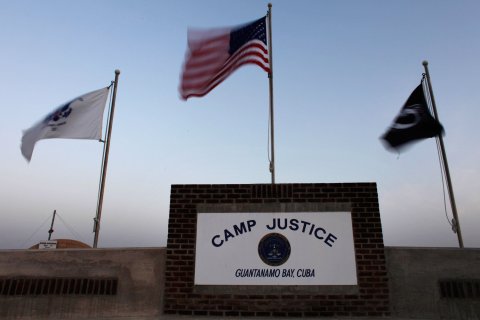
Administration officials counter that the waivers are not a panacea. For one thing, not all the certification requirements can be legally waived. For instance, the administration is barred from invoking the waivers if the receiving country is on the State Department's list of state sponsors of terrorism. That prevents the administration from repatriating detainees to Sudan. In fact one Sudanese prisoner, Noor Muhammed, faces the prospect of being held indefinitely at Guantánamo even after his sentence, meted out by a military commission, is completed later this year.
The bigger problem, administration officials say, is that the certification requirements can't be waived if the receiving country is facing a continuing threat of terrorism that could "substantially affect its ability to exercise control" over the detainee. That provision, they argue, makes it extremely difficult, if not impossible, for them to send detainees to Yemen, a country that remains in the grip of an al Qaeda insurgency. Of the 86 detainees who have been cleared for transfer, 56 are from Yemen. "The Yemenis are off the table at least for now," one senior administration official says.
To make more than incremental progress, administration officials argue, they need new legislation to pass Congress. To that end, they say they are backing a proposal that recently came out of the Senate Armed Services Committee, which would give them far more flexibility to transfer detainees overseas as well as to the United States. The chances of such a proposal becoming law? "Hope springs eternal," says a senior administration official with a sigh. In other words, for the vast majority of detainees at Guantánamo, hope appears to be running out.



